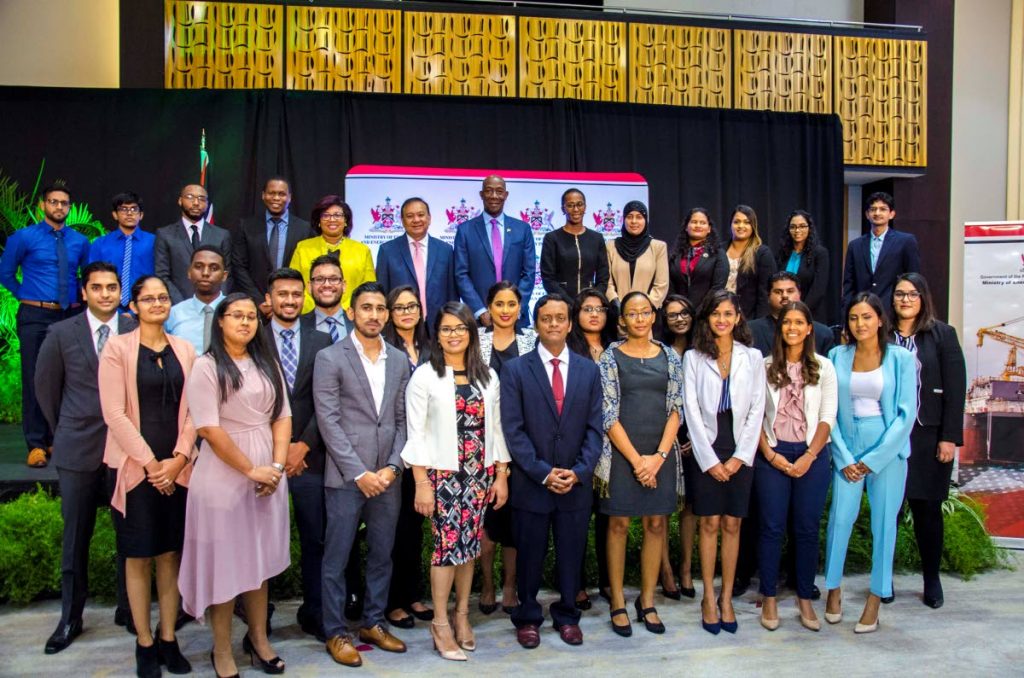Energy-sector workforce down 33%

THE ENERGY sector has lost a third of its workforce in the past five years, reported Energy Minister Franklin Khan.
He was speaking on Wednesday at the launch of the Three-Tier Mentorship Programme for Energy Professionals at the Hyatt Regency, Port of Spain.
He said employment in the industry, both private sector and public sector, has seen a steep drop of 33 per cent over the last five years, from 21,700 people in 2014 to 14,600 in 2019.
In terms of the public sector, he reported from 2005 to present there has been a constant stream of resignations from the Energy Ministry, with the principal reason being the disparity in compensation between the ministry and the rest of the energy sector. As at December 2018, he said, a further 56 officers had resigned to take up better-paying energy-sector positions, and the ministry also lost contract officers over the same period.
"Several of the ministry’s staff were recruited by companies in the domestic energy sector, but many have taken up employment abroad," he added.
Khan said in a country where in excess of $600 million was disbursed through the GATE programme and numerous energy-related scholarships were granted, the under-employment of local energy professionals is unacceptable. He said the mentorship programme, spearheaded by the Prime Minister, was an effort to address the loss of staff.
To be eligible, participants must have attained qualifications in energy-sector disciplines following the award of national scholarships and/or graduated from their respective energy-sector fields with first-class honours or at the masters level with distinction. The initial programme comprises 40 graduates, 27 within the current employ and 13 identified through the Education Ministry scholarship division. The skills include geo-science, geo-physics, petroleum engineering, chemical and process engineering, mechanical engineering and information technology. The programme comprises three tiers spread over five years.
Khan said the ministry was also recruiting the world-renowned energy consultants Wood/Mc Kenzie to further develop the programme and assume overall responsibility for its implementation.
The Prime Minister, in his feature address, recalled his visits in June to energy companies BHP and Shell in Houston, and BP in London.
"And on every occasion I was presented with, and I met, groups of nationals holding their own in the international environment of hydrocarbon business."
Rowley said this country has confidently had a pool of intellectual resource in the energy sector until recently. He described as "worrisome" the depletion of the pool at the Energy Ministry, which is the industry regulator and the "government's brain," and said this depletion must also be a serious concern to citizens.
"Maybe we at one time thought that it wouldn't happen and the brain drain out of the ministry would stop. But it certainly didn't; it accelerated over time. And we did find ourselves in a situation where there were not enough people standing in the wings to replace those who were attracted out of the industry."
He said there were those in the private sector in attendance who would not loudly acknowledge that they have benefited significantly over the years by attracting the best that was in the public sector.
"We have to fix that, and that is what this morning is about – ensuring that the public sector is not atrophied because of the attraction of the talent pool that was available in the public sector being only available in the private sector, and I may go so far as to say, to the detriment of the public sector."
He said there were a number of areas in the industry, including safety, environment, chemistry, mechanical engineering, marketing and accounting, and expressed hope the participants will fill a lot of these slots and a number of vacancies in the public sector.

Comments
"Energy-sector workforce down 33%"